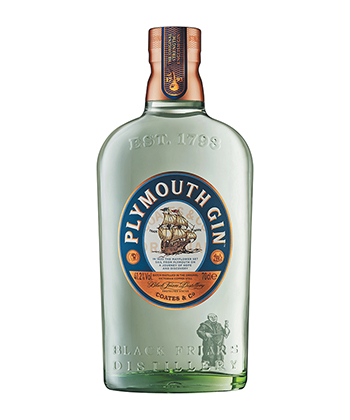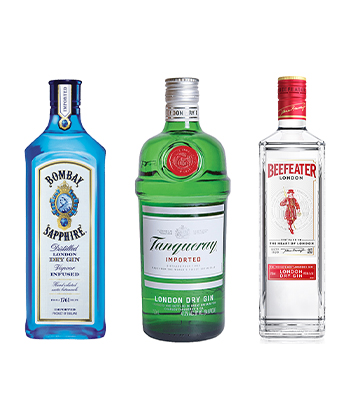Versatile, budget-friendly and the perfect base for countless cocktails, gin remains a beloved choice for consumers and bartenders alike. While London Dry continues its reign as the best-selling and most recognizable style of gin, its cousin Plymouth gin has quickly gained ground as a go-to option.
Keep reading to learn more about how these two British-bred classics stack up.
Origin
While alcohol laced with botanicals has been used for medicinal purposes for eons, many cocktail historians believe gin was invented by the Dutch, who popularized the juniper-flavored spirit known as genever (or jenever) in the 16th century.
The English, who became fond of genever while fighting in Holland during the Thirty Years War, began to import the spirit back to their homeland starting in the 17th century. The product gained traction and eventually became known as ‘gen.’ As the quality of genever evolved, distillers eventually created the refined style that would become known as London Dry.

Plymouth gin can be traced back to 1793 where it was first produced at the Black Friars Distillery (known today as the Plymouth Gin Distillery). The distillery’s location in Plymouth, England, home to a Naval dockyard, helped popularize its products with the Royal Navy. As the company website claims, for nearly two centuries, every Royal Navy boat left with a supply of Plymouth Navy Strength gin.
Production
In order for a London Dry to be called as such, it must meet a set of legal qualifications.
Botanicals are key to gin’s unique profile, which otherwise would just essentially be vodka, and while there are a dizzying number of recipes on the market, one ingredient that is always constant is juniper.
Black Friars is currently the only distillery that produces Plymouth gin, whereas London Dry can technically be made anywhere in the world. And while Plymouth is considered to be a style of gin, it falls within the London Dry category, perhaps more akin to a cousin. As Thrillist explains, “Plymouth is made under the same requirements of London Dry but has a unique soft taste that distinguishes it.”
Flavor
Tanqueray, described by VinePair as a “textbook definition of the London Dry style,” comes in 94.6 proof and is touted for its “impressive balance between its juniper, citrus, and other botanical notes.” Beefeater, another quintessential London Dry bottled at 94 proof, received high marks from VinePair for its “brambly berry notes mix[ed] with black pepper spice,” and “candied lemon peel and fresh rosemary aromas.”

VinePair’s tasting of Plymouth gin yielded savory spice and earthiness due to its high percentage of root botanicals. It is also less juniper-forward and more citrusy than some of the more popular London Dry brands, with a touch of sweetness and a weighty mouthfeel that separates it from the pack. It comes in much lower at 82.4 proof.
Cocktails
For Renato M. Tonelli, a sustainable cocktail blogger and bartender at Evelina in Brooklyn, Plymouth’s mellowed notes make it ideal for spirit-forward drinks that need to be stirred down. “It makes perfect Negronis and Martinis (regular, dry, and dirty) and I like to think [that’s] because it doesn’t need as much dilution as a strong-tasting London Dry,” he says. When using a more classic London Dry, however, Tonelli prefers Gin & Tonics: “That high presence of juniper blends itself amazingly well with the quinine from the tonic water. The tonic water itself also helps London Drys dilute and open up, making them more pleasant and palatable.”
Offering a different perspective, Shane O’Neill, the lead bartender at Quality Eats in NYC, cites London Dry’s higher alcohol content and more aggressive tasting notes as the reason why it’s his go-to for Negronis. “The higher ABV and strong notes of juniper allows it to hold its own and not get lost in the Campari and sweet vermouth,” he adds, pointing to Tanqueray, specifically. But like Tonelli, he enjoys Plymouth in Martinis: “Plymouth is a much softer, gentler gin, making it perfect for a Martini with a twist of lemon.”
What the Pros Think
When it comes to his customers, Tonelli admits there isn’t a leading favorite that he can ascertain. “Behind the bar I notice a pretty even split between London Dry and Plymouth drinkers,” he says. “What I find very common are customers that have a favorite gin, whatever it may be, that they never stray away from and like to plug into every cocktail of their choosing. Even I can be one of those customers at times!”
